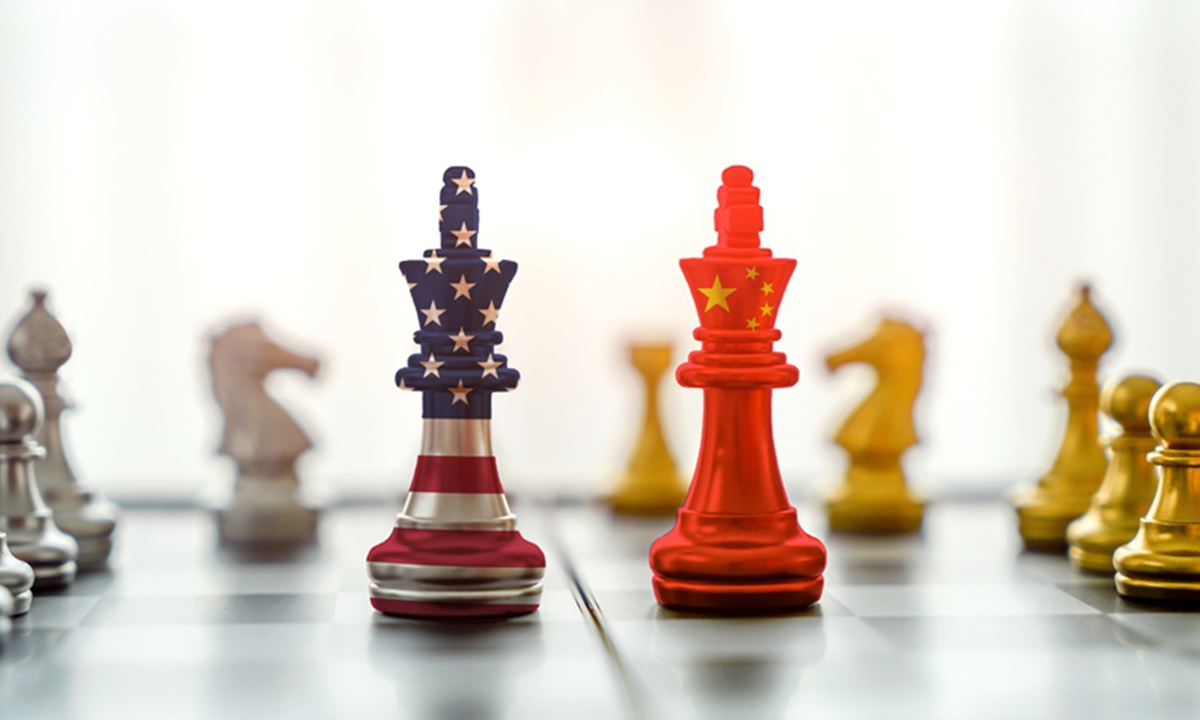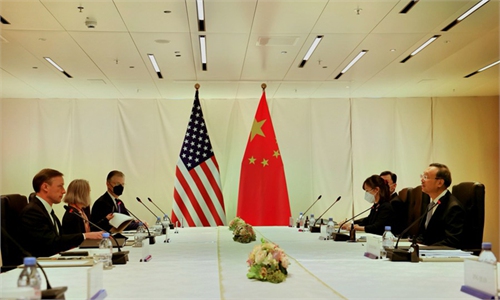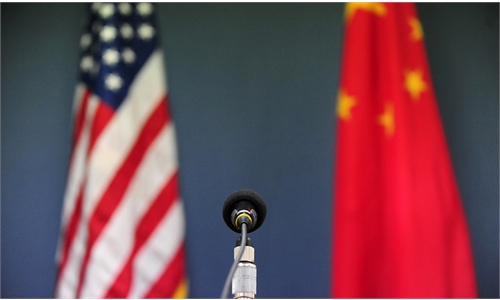China-US trade talks spark cautious optimism
Washington needs to show more sincerity: experts

China-US Photo: GT
A phone call between senior Chinese and US trade officials on Saturday sparked cautious optimism among some analysts over the possibility of both sides moving to resolve certain trade issues, including tariffs, but they also cautioned that the US will unlikely change its overall hostile approach toward China.
Analysts also stressed that the US should show more sincerity in such talks by addressing China's core concerns, pointing to the Biden administration's hesitation in scrapping tariffs on Chinese productions despite mounting calls from US businesses.
According to a report by the Xinhua News Agency on Saturday, Chinese Vice Premier Liu He held a video call with US Trade Representative Katherine Tai during which they had "pragmatic, candid and constructive exchanges" on several issues.
The two sides agreed that China-US economic and trade relations are of great importance to both sides and the world at large, and bilateral economic and trade exchanges and cooperation should be strengthened. They also exchanged views on the implementation of the phase one trade agreement, with both sides agreeing to address each other's legitimate concerns through consultation, the report said.
In particular, the Chinese side lodged representations on the lifting of additional tariffs and sanctions and reiterated China's stance on its economic development model and industrial policies, according to Xinhua.
On Friday, Chinese Ambassador to the US Qin Gang said in an interview that the two countries' trade friction in the past few years again proved that there's no winner in trade or tariff wars between China and the US, according to media reports.
"It's normal that China and the US have economic competition and trade friction as the world's two largest economies and one of each other's most important trade partners. The key is how to cope with the friction," he said. "We propose to seek solutions that can be accepted by both sides by means of negotiations, based on the principle of mutual respect and benefit."
Qin made the comment following Tai's remarks about the "recoupling" of the US and Chinese economies, according to media reports.
Those signals have sparked optimism for better China-US trade relations, but analysts remain cautious, as they don't expect the US to change its strategic anxiety over China in the foreseeable future.
The US has been launching attacks against several Chinese industries through various forms, from tightening regulations on Chinese companies listed in the US to blocking supplies to Chinese technology firms.
According to Qin, more than 900 Chinese companies have been included on the US' entity lists, and it's becoming increasingly normal that the US cracks down on Chinese companies and restricts China-US trade exchanges under the disguise of protecting national security.
But the situation might change, as the US economy is facing increasing pressures from domestic problems like consumer inflation and debt, where it is in more urgent need of support from China, experts said.
Dong Shaopeng, a senior research fellow at the Chongyang Institute for Financial Studies at Renmin University of China, told the Global Times that the US hopes that China can continue to buy US bonds, while hoping that China's central bank could adopt a loose monetary following in the US' steps.
"The US is at a point where it needs external support for its fiscal and trade policies to relieve its economic pressure. China has never objected to communication... the two countries have the basis to move in a positive direction," Dong told the Global Times.
According to experts, one improvement that they expect in China-US trade talks is that the US might gradually relax the punitive tariffs on Chinese goods, as the tariffs have become a useless weapon for the US.
"The tariff increases have added to the US' inflation level, while not succeeding in hurting Chinese exports to the US... it's a basic trend that the US would relax the tariffs in the future," Cong Yi, a professor at the Tianjin University of Finance and Economics, told the Global Times on Sunday.
But he stressed that the process would take a long time, as the US would use the tariff issue as a bargaining chip to strive for more benefits from China.
Despite the positive signs, experts also stressed that the US should show more sincerity in seeking cooperation with China.
"It's a positive sign that the two sides are restarting communication, but I don't think that the US has shown enough sincerity in solving friction," Dong said, adding that the US should not be overly obsessed with getting benefits from China - like forcing China to buy more of its products - while neglecting China's appeal.
Cong said that China-US relations might ease compared with the Trump era, when many extreme anti-China policies were launched, but bilateral relations will continued to face tension in the long run, as the US is unlikely to change its stance of viewing China as a strategic competitor.



